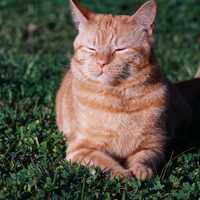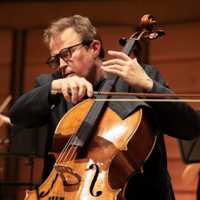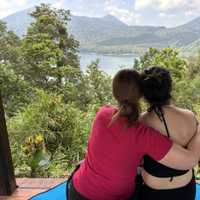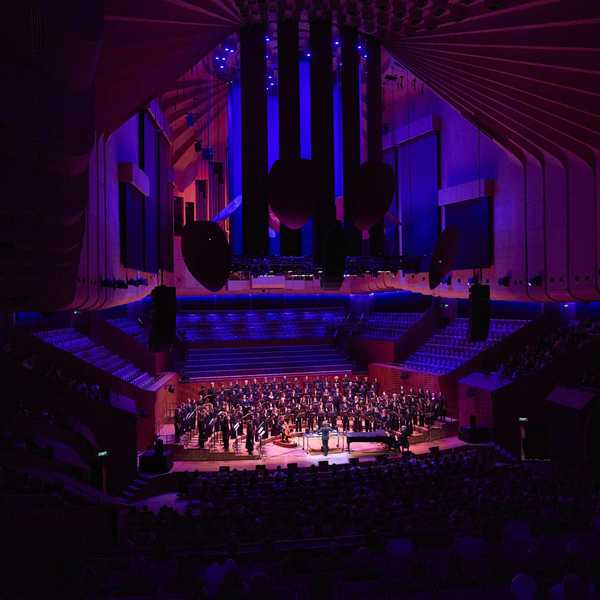Approx. 12 minute read
The March 4 Justice protest in Sydney took place yesterday 15 March. I am in awe of the community of people from all walks of life who gathered to protest gendered violence; sexual harassment and domestic violence against women.
While I celebrate and have such admiration of the courage of everyone who marched, I lament the fact that it is still necessary to protest en masse for fundamental human rights. It is a fundamental right not to be sexually harassed. It is a fundamental right to be safe in your community.
Take a moment to absorb that this is a fundamental human right.
As I read the stories of the wonderful women in music that have participated in my Shout Sister Shout interview series, I recognise that there are sensitive issues they raise from their own experience. I feel privileged that they felt comfortable enough to share some of their experience with me and you as a trusted reader. I also recognise that, sadly, some of these things have echoed relentlessly in our history. My inspiration for the series, Sister Rosetta Tharpe, faced confronting circumstances and, despite ringing us into an era of rock ’n roll, her influence was neglected by history because of the unacceptable level of ‘female’ of which her body comprised.
I implore you to give us women and anyone who has been victimised your attention on matters of gendered violence, acknowledge what we say and call out unacceptable behaviour when you identify it in the future. It is important, you will help change the world when you do this!
With that said and read because it is important, I continue to celebrate women in jazz, improvised and world music. I give you the brilliantly talented, Susie Bishop.
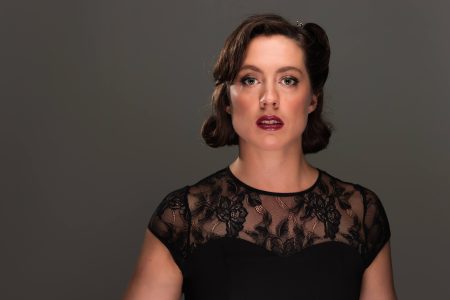
Susie is a violinist and singer whose diverse expertise are golden whether she performs Baroque aria, world fusion music, gypsy jazz, nu-folk or more theatrical styles. In our interview, she shares her story, experience and perspective. Read on to learn more about Susie Bishop.
Sonia de Freitas: Hi Susie, how are you and where does our interview find you today?
Susie Bishop: Today I am unwinding from a wonderful whirlwind tour on the weekend with the Miriam Lieberman Trio! It was so good to be back on the road and performing to live audiences again and experiencing the joy of travel.
SdF: Can you tell me about your journey in music? When did you know that you were going to make music your career?
SB: I have always had music in my life and I don’t think it’s ever been a conscious decision to pursue it, it just happened. I actually completed a theatre degree after high school, but I ended up falling into music. I hate auditions as the idea of competing with other highly skilled people seems counterproductive and actually quite damaging, as I’d much rather collaborate and have a sense of celebrating the skills of others rather than pitting myself against them. In this way, it’s much easier to follow the path of music as you have more opportunity to make a living from smaller collaborative groups without having to fight tooth and nail for well paid and highly sought after positions in the more established institutions. But as with anything, it’s also who you know, and I think I’ve always had more connections to the musical world than the theatrical. Now I wouldn’t change it, and I feel so fortunate to be where I am, making music that I love with other amazing artists.
SdF: You must be one of the busiest musicians around performing in numerous ensembles including; Chaika, the Miriam Lieberman Trio, Monsieur Camembert, the Marais Project and more. Can you tell me about your creative process when approaching your work? Is there anything particular you do that is special to your creative process?
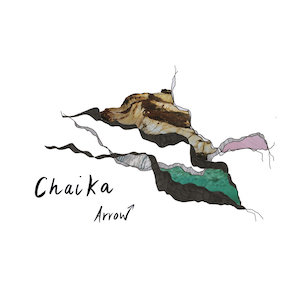
SB: I always feel surprised when other people see me as being such a busy musician, as to me it feels natural to have a variety of interests that I nurture. There was a definite point when I realised that I didn’t need to blinker myself to one style and that I could really establish myself in each of my areas of interest, even though it might take a little bit longer in the process. In the end I realised that all my different interests informed and complemented each other anyway, and it has been incredibly liberating for me to realise that I can move smoothly between genres and with the confidence that I am building my general musicianship. So I suppose my creative process is basically to just let myself embody the style that I’m in, without trying to censor the nuances that all my various interests might infuse into what I’m performing. I used to worry that when I played in styles that are very specific such as Baroque, Celtic or Balkan, that I was only performing a kind of impression of authenticity, but then I started to let go of that and trust my musical judgement to not do anything too out of place or in bad taste.
SdF: Who is your sounding board? There must be someone that you trust to give you brutally honest feedback on your music. How do they fit into the process?
SB: What a great question! I have never really thought about how important it is to have a sounding board, but it is so incredibly vital. My biggest sounding board is my partner Jo. He is also a beautiful bassist, and has an unfailing ability to be completely honest in the most beautiful, sensitive way. I always take things to him first, but I have quite a few other friends and colleagues who I trust enough to tell me honestly what they think, so they quite often get the second look in.
SdF: What was the first song that you remember making an impact in your life and why was/is it so important?
SB: I was recently reminded of one of my favourite songs by Joni Mitchell, Both Sides Now, and I think this song is the one, if I really have to single one out. I’m not great at listening to words generally, but I remember the first time I heard this song it drew me in to the story from the start and I was blown away. It illustrated something to me that I have really tried to keep at the heart of my music. It is the stunning beauty that can be found in simplicity and raw truth. I feel that within three stanzas, in the simplest of words she captures our imagination and sums up perspective, love, life and growth in a way that gets straight to the heart. It’s the most perfect bookend of a song and even from the perspective of a young woman, as she was when she wrote it, and I was when I first heard it, it brings understanding beyond years. In later life when I heard the incredible version she performed with an orchestra, I could hear the meaning and understanding of her insightful lyrics, embodied in a voice no longer fresh and angelic with youth, but rich with the raw edged depth of perspective that a life full of experience of love, heartbreak, success, regret and hardship brings, and the surety of one who really knows themselves. This to me will always be a song of utmost perfection.
SdF: Have you experienced particular challenges as a female musician? How did you overcome these challenges and what do you think needs to change for others to avoid these challenges in the future?
SB: I think my biggest challenge has been finding the right environment to work in. I have had some experiences in the past where I have felt uncomfortable or stressed, to the point where I can’t perform without censoring, or becoming creatively blocked. There have been well paid gigs that I eventually started to turn down, because I felt uncomfortable about how much it was angled towards selling myself as an object and not actually about playing music. Other situations have also included environments that are fraught with negative behaviour from fellow colleagues such as manipulation and aggressive behaviour, and in all these situations I have felt like there is some compromise that is expected of me, that I am not willing to make. As a result I have really had to consider what kind of work I am willing to take on. In choosing to focus on a lot small collaborative ensembles with really high class musicians who are respectful and considerate, I have found that there is an incredible amount of support, and I very rarely feel like I am in anyway compromised or uncomfortable.
In terms of changes that need to happen, I think there are lot of really positive shifts that are already in motion. Still I believe we need more focus on championing our really positive role models! It is so important to have strong and inspiring women in influential positions and really nurturing them in that environment, so that we don’t end up accepting the typecast roles that society in the past (and to some extent the present) set out for us. Improvised jazz is an area that has traditionally had a really strong masculine presence, but it’s so good to see inspiring artists such as Keyna Wilkins, Zela Margossian, Ellen Kirkwood and Zoe Hauptmann blazing trails in the jazz scene and inspiring generations. Also, in the wider music scene it’s really good to see women working their way into the executive positions. I just loved how much Linly Goh achieved in her time as CEO at City Recital Hall. The more that these powerful and inspiring women are allowed and encouraged to make their way to high profile positions, the more it opens up the horizons for the next generation.
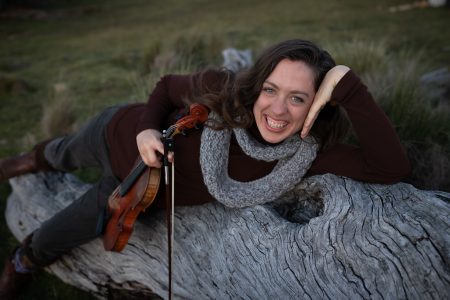
SdF: So, what’s on the horizon for you? Any projects you’re working on or new releases to share?
SB: I have been pretty busy working on new material for my songwriting duo with my sister, so we are hoping to lay some of that down in the next year or so, although we don’t really have any deadlines set! But you can keep up to date with us if you follow us on FaceBook here, or you can check out our website and join our mailing list here. We have both also been busy writing original pieces for baroque-jazz fusion ensemble Elysian Fields which will be aired sometime in the first half of this year along with world premieres by some other really amazing women which you can follow on our FaceBook page too. There are also some really exciting world premieres and concerts coming up with the Marais Ensemble which is also on FaceBook. Both groups are run by the wonderful Jenny Eriksson and you can also keep up to date by checking out the website and joining the mailing list here. Chaika is also in the midst of working on some really exciting new material which we are working to prepare for recording sometime later this year or early next year, follow us on FaceBook, or keep track on our website and mailing list here. Miriam Lieberman Trio has also released a crowdfunding campaign for her newest album on which I will be featuring alongside Lara Goodridge which you can contribute to here. The campaign is running until March 28th and 100% of the proceeds will be going into production costs. Rewards such as early release of the album are offered in return for contributions.
SdF: What is your most memorable performance and why?
SB: It’s hard to answer this question without sounding a bit airy-fairy, but in reality, this is the power of music in that it has the ability to communicate in a way that no other means of expression can. I love every single performance for it’s uniqueness. Every time I am on stage and in the moment I cherish the feeling of sharing a journey, and I can’t pick out any single experience as a favourite! My favourite kinds of performance though are when there is no self-consciousness and collectively you and the audience lose yourself in the moment. There is no real way of predicting when these kinds of performances happen, and they can sometimes be the performances when there are three people in the audience at a gig in the back room of a pub, but they are the ones that stick in the memory and give the energy to keep going as a performer.
SdF: Musicians come in many “flavours”; pianists, trumpeters, bassists… ; if you weren’t a singer and violinist, what flavour musician would you want to be and why?
SB: I don’t know about instruments, but in terms of flavours, I have always loved and respected the eastern approach to music where there is so much emphasis placed on feeling the music, and developing it as an extension of your emotions and intuitive expression. I feel that in western culture we view the learning of music as a discipline and a skill set, almost something external to us that needs to be learnt in, but I feel like this forms a disconnect. Some kind of right-brain, left-brain divide. In 2018 I was briefly touring with a group of classical Persian musicians, and seeing them perform was a lightbulb moment for me. They had incredible amounts of discipline and technical agility, but absolutely zero conscious awareness of it. The brilliance of their technique was outshone by their intense immersion in the moment, and their commitment to channeling the music, which resulted in the most incredibly crafted and emotive performances. I would definitely re-envision myself with the flavour of being a pure conduit for the music if I could!
SdF: What advice would you give to any aspiring musicians out there?
SB: I think I would say don’t settle for the teachers or the musicians who don’t click with you! You need to find people who inspire and motivate you. I come across far too many people who talk with regret of letting go of an instrument they deeply cared for because people around them had convinced them in some way that they weren’t good enough and would never have the ability. I would say that the only person who isn’t good enough is the person who isn’t willing to find the right approach to keep you inspired, motivated and moving forward. We never stop learning as musicians, and I think it is so important to surround yourself with the people who encourage you and inspire you to keep building who you are and who you want to be as a musician.
To learn more about Susie Bishop visit: susiebishop.com, lauraandsusie.com, chaikaband.com
To buy Susie Bishop’s music visit: chaika.bandcamp.com/album/arrow
For more information on International Women’s Day visit: internationalwomensday.com
Keep an eye out for my next interview in the Shout Sister Shout series where I interview Loretta Palmeiro.
Did you miss the previous Shout Sister Shout instalment? Read Emma Pask’s interview here.
Share "Shout Sister Shout: Susie Bishop (IWD 2021)"
Copy


